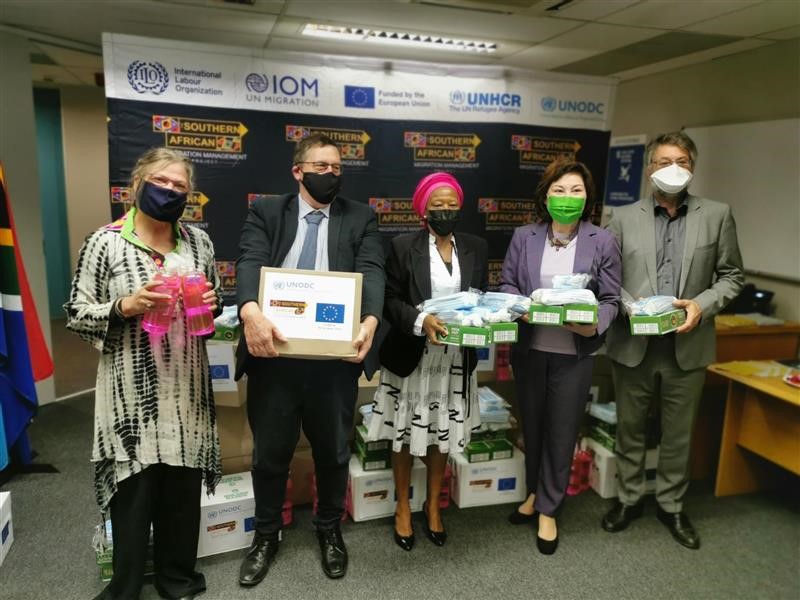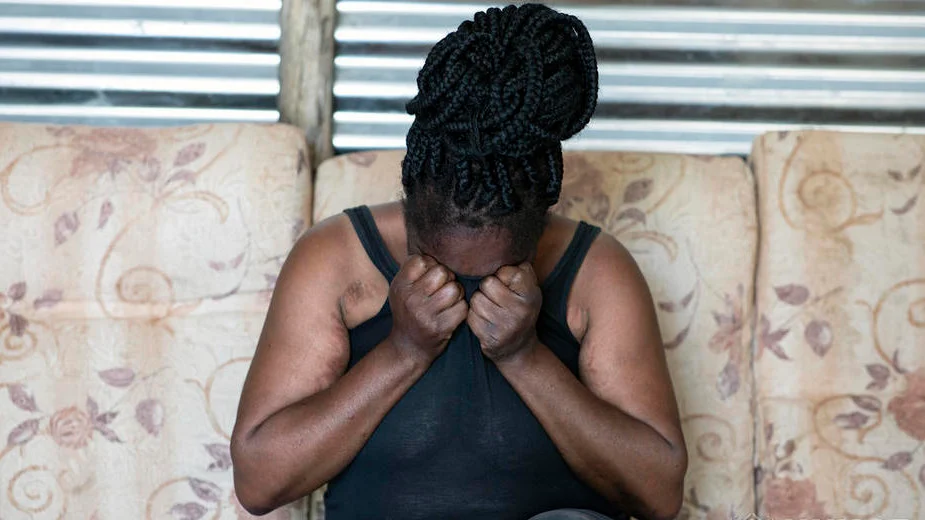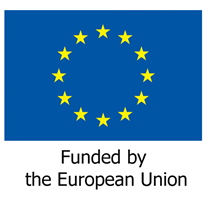
Pretoria, South Africa – 10 September 2021 – UNODC, under the framework of the Southern Africa Migration Management (SAMM) Project, and in collaboration with the Department of Justice and Constitutional Development, belatedly marked the 2021 World Day against Trafficking in Persons (TIP) on the 10 September 2021, by donating Personal Protective Equipment to various shelters for Victims of Trafficking in Persons and Gender-Based Violence in South Africa, in order to ensure that Victims of Trafficking in Persons and staff in the respective shelters are protected from the COVID-19 pandemic. The 2021 World Day Against TIP, Global theme “Victims’ Voices, Lead the Way” puts victims of human trafficking at the Centre of the campaign and highlights the importance of listening to and learning from survivors of human trafficking.
A majority of shelters for victims of trafficking in persons in South Africa and across the Southern African Development Community (SADC) are not sufficiently equipped to adequately provide protection and support to both victims of trafficking in persons and gender-based violence victims, due to lack of infrastructure and scarcity of resources. This challenge has been compounded by the the COVID-19. However, civil society organizations have continued to play a key role in ensuring that the shelters remain operational, and their doors stay open.
The handover ceremony was attended by Government representatives led by the Deputy Minister of Justice Hon. John Jeffery and a lead prosecutor on TIP from the National Prosecuting Agency, representatives of six shelters[i] and representative of the European Union delegation in South Africa led by the Head of Development Cooperation, Mr. Bernard Rey.
Mr. Bernard Rey lauded the work that civil society organizations are undertaking in caring of persons who have been through traumatic experiences. He noted that it was important that the victims of these heinous crimes of Trafficking in Persons do not lose their voices and thanked the organizations for assisting the victims regain their voices.
“Many practitioners argue we should move away from highlight that these people are not passive and disempowered but are strong and empowered. In the same vein, I want to end by adapting the theme of this year’s World Day Against Human Trafficking and say “Survivors Voices lead the way”
Mr. Bernard Rey
Head of Development Cooperation
EU Delegation to South Africa.
The Honorable Deputy Minister of Justice and Constitutional Affairs, Hon. John Jeffery noted the gravity of Trafficking in persons but also highlighted the work that the Government of South African is undertaking, to curb the crime and specifically, under his docket. Hon. Jaffery’s observed that from the data received and further evidenced from victims rescued, females are most likely to be trafficked. Females contribute to 90% and above of suspected and confirmed victims. He spoke of also compounded challenges, where ` In many sex trafficking cases, the victims have substance abuse disorders, very often as a result of the actions of the trafficker, and thanked civil society for playing a key role in protecting vicitms in South Africa.
Ms. Zhuldyz Akisheva, UNODC Regional Representative, reaffirmed UNODCs support and commitment to working with both government and civil society in addressing Trafficking in Persons and in protecting victims.
The Southern Africa Migration Management (SAMM, 2020-2023) project is a model of a ONE-UN approach collaborative effort between 4 UN development and humanitarian agencies: the ILO, the IOM, UNODC and UNHCR, under the European Union Regional Indicative Programme (11th EDF RIP). The overall objective of the SAMM programme is to improve migration management in the Southern Africa and Indian Ocean region.

[i] The participants represented persons from the following shelters: Mercy House, Mali Martin Polokegong Centre, Grace Help Centre, AMCARE Hannan House, Re-Bafenyi Shelter, Carrol Shaw
 English
English



